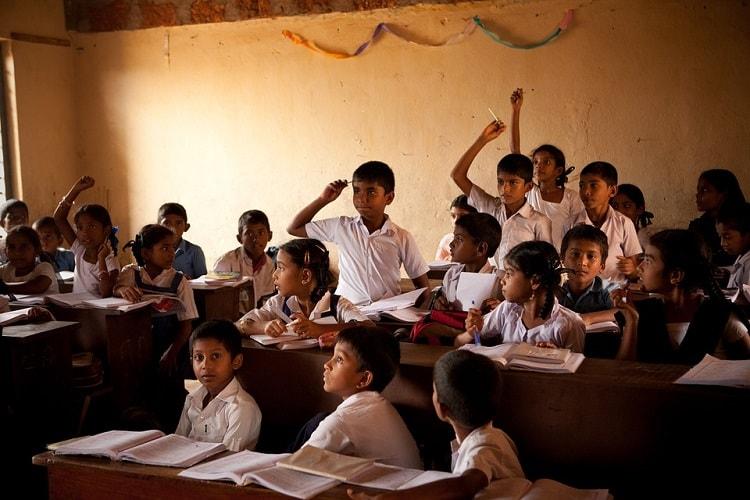
The first full budget of the second term of the Modi government was presented by Finance Minister Nirmala Sitharaman on Friday, and featured announcements regarding schools and higher education, as well as skill development for youth. The Centre has allocated Rs 56,536.63 crore to the Department of School Education and Literacy, and Rs 38,317.01 crore to the Department of Higher Education, making the education budget a total of Rs 94,853.64 crore. This is an increase from the Revised Budget 2018-19, which was at Rs 83,625.86 crore.
Although the Kothari Commission in 1965 had recommended that educational expenditure must amount to 6% of the GDP, the allocation has consistently remained much lower.
Here are some of the major announcements made regarding education in the budget released on Friday.
1. New regulatory body to replace the UGC
In her speech, Nirmala reiterated that the University Grants Commission (UGC) will be replaced by a Higher Education Commission of India (HECI). “Regulatory systems of higher education would be reformed comprehensively to promote greater autonomy and focus on better academic outcomes,” she said, and added that a draft legislation for setting up the Higher Education Commission of India (HECI), would be presented in the year ahead.
Last year in June, the central government had announced its plans to establish the HECI in place of UGC, and a draft Higher Education Commission of India (Repeal of University Grants Commission Act) Bill, 2018 was released for public feedback.
Unlike the UGC, which provides grants to central institutions, the HECI was proposed to not have any financial powers. The funding role was proposed to be shifted to the MHRD instead – a proposal that has been opposed by several sections.
2. New National Education Policy
In her speech, Nirmala said that the government would bring in a new National Education Policy, which will propose major changes in school and higher education. A draft National Education Policy (NEP) was released by the MHRD on May 31, and was opened to public feedback and comments till June 30.
Compiled by a committee led by Dr K Kasturirangan, a former ISRO chief, the draft policy had come under a lot of criticism for different reasons. The three language formula in particular, which made learning Hindi mandatory in non-Hindi speaking states caused massive uproar. The MHRD quickly released a revised draft in response, removing the requirement.
The draft policy also recommended extending the RTE ambit to secondary education, a move that could ensure compulsory education for children till the age of 18, from the existing age of 14. It also suggested revamping three-year Bachelor courses to four-year courses. Discontinuing the M Phil degree in the country was also recommended.
4. Funds for Research and Innovation
A total amount of Rs 608.87 crore has been allocated under the head ‘Research and Innovation’. This is a huge increase from the amount of Rs 243.60 crore estimated to be spent in 2018-19. The draft NEP had also recommended a new authority called the National Research Foundation (NRF) to fund, coordinate, and promote research at the college-level.
Speaking about NRF in her budget speech, Nirmala said, “NRF will ensure that the overall research ecosystem in the country is strengthened with focus on identified thrust areas relevant to our national priorities and towards basic science without duplication of effort and expenditure. We would work out a very progressive and research-oriented structure for NRF. The funds available with all Ministries will be integrated in NRF. This would be adequately supplemented with additional funds.”
Earlier this year in March, a controversial circular by the Central University of Kerala (CUK) had also directed that research topics for PhD students must be in accordance to ‘national priorities’, and research in ‘irrelevant topics’ and ‘privilege areas’ must be discouraged. The University had issued the circular following a Vice Chancellors’ meeting in Delhi with the MHRD and the UGC. However, the MHRD had responded to the circular saying that while the issue was discussed in the meeting, they had not issued directions to restrict the choice of research. The Ministry added that the government believes in the principle of freedom in research.
5. ‘World Class Institutions’
Nirmala in her speech also said that the new NEP will “transform India’s higher education system to one of the global best education systems.” Crediting the Modi government for the recent inclusion of three institutions from India in the QS World University Rankings (IIT Bombay, IIT Delhi and IISc), the minister announced that an amount of Rs 400 crore will be provided for “World Class Institutions”, for FY 2019-20. This is an increase from the Rs 128.90 crore allocated for the same in the revised budget 2018-19.
A programme called ‘Study in India’ with a focus on bringing foreign students to higher educational institutions in India was also proposed, in order to make India a “hub of higher education.”
Commenting that higher educational institutions are becoming ‘centres of innovation’, the Finance Minister referred to programmes like SWAYAM (Study Webs of Active –Learning for Young Aspiring Minds), Global Initiative of Academic Networks (GIAN) and the IMPRINT (IMPacting Research INnovation and Technology) scheme.
While SWAYAM offers open online courses from Class IX to post-graduation free of cost, both GIAN and IMPRINT are primarily focused on elite institutes like IITs and IISc. The speech also mostly referred to science education, with no mention of the social sciences.
6. Skill training
Alluding to 12th century social reformer and Kannada Bhakti poet Basavanna’s principles, Nirmala said, “Implementing ‘Kayakave Kailasa’ (work is worship), the government enables about 10 million youth to take up industry-relevant skill training through the Pradhan Mantri Kaushal Vikas Yojana (PMKVY).” She went on to say that the scheme has created a pool of high standard skilled manpower, which would help tackle the ‘severe labour shortages’ predicted for major economies in the future.
The Finance Minister also mentioned an increased focus on ‘new-age skills’ like Artificial Intelligence (AI), Internet of Things (IoT), Big Data, 3D Printing, Virtual Reality and Robotics, with lucrative job prospects and high salaries. A recent study has indicated that AI and IoT can create more than 28 lakh jobs in the country in the next few years. Currently, B Tech courses in AI are being offered mostly in premier institutions like IIT Hyderabad and IIIT Delhi.
7. Sports Education
A National Sports Education Board for development of sportspersons was announced under the Khelo India programme, which was launched in 2017. The programme, which is meant for promoting sports, and supporting and funding sportspersons across the country, will be expanded to provide all necessary financial support, Nirmala said in her speech. Khelo India has been allocated Rs 601 crore this budget, an increase from Rs 550.69 crore from last year.
[“source=thenewsminute”]








